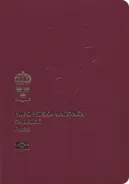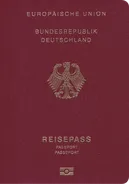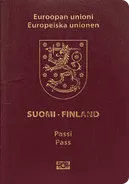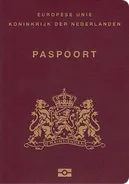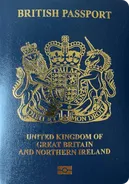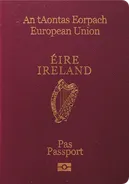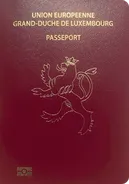The Enhanced Mobility Index carries the most weight (50%) and is based on the travel benefits that each passport gives the holder, while also taking into account the level of “attractiveness” of the destination country based on its quality of life.
Denmark
Denmark Passport Ranking 2025
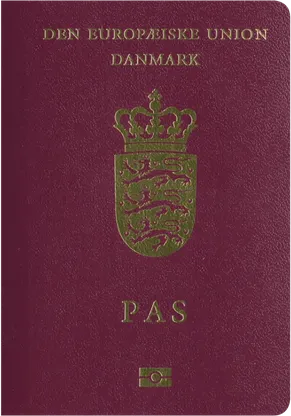
Global passport index
The Denmark passport currently ranks on the 8th place according to the Guide Passport Ranking Index. It provides visa-free access to 127 countries.
This makes it one of the most desirable passports in the world with very high mobility, investment, and quality of life scores.
Denmark passport holders have visa-free and visas on arrival access to countries such as Belgium, Japan, Canada, The United Kingdom, The United States, Micronesia, Singapore, allowing almost instant travel worldwide. Denmark passport holders do however require a visa to enter about 17 destinations in the world such as China, Afghanistan, Algeria, Ghana, Mali, Nauru and The Syrian Arab Republic.
Score over time
-
Global Passport Index
-
Enhanced Mobility Index
-
Investment Index
-
Quality of Life Index
Enhanced Mobility Index
-
198
Countries The total access is the sum of Visa-Free Access, Visa-Free (limited days), Electronic Travel Authorization (eTA), and Visa on Arrival, which are each weighted to varying degrees.
-
10
Free Access When the number of days allowed in the country is not applicable or is unspecified. Visa-free access is given a weight of 1.0.
-
37
Electronic Visa eTA is an entry requirement for visa-exempt foregin nationals traveling to or transiting in a country. This also includes Electronic Visa Waivers and is weighted at 0.9.
-
117
Free Access
(limited days) Visa-free access when the number of days allowed is determined. Visa-Free (limited days) access is given a weight of 1.0 -
5
Electronic Travel
Authorization(eTA) eTA is an entry requirement for visa-exempt foregin nationals traveling to or transiting in a country. This also includes Electronic Visa Waivers and is weighted at 0.9. -
12
On-arrival visas You do not need to secure a visa for the country you are visiting before arriving there. Your visa will be provided only when you reach the first port of entry to your destination. Visa on Arrival is given a weight of 0.9.
-
17
Visa Required Possession of a valid visa is required for entry and cannot be obtained on arrival. Visa required is given a weight of 0.
All countries
Investment Index
The Investment Index is used to provide a general assessment of the economy as an option for investment and other business decisions. Prosperous nations with a dynamic economy are favored, while the level of personal taxation is also taken into account. It is worth 25% of the overall calculation.
GNI per capita The Gross National Income Per Capita is weighted at 25% and is defined as the gross domestic product, including receipts from abroad of employees compensation, property income, and net taxes minus subsidies. The data is calculated from the World Bank.
$66,720
Personal tax rate Personal / Individual Income Tax Rates is weighted at 25% and is calculated from Trading Economies & other sources, such as consulting companies and tax authorities. The choice of highest tax bracket was used because it was deemed most relevant for those interested in an investment index.
55.9%
-
Innovation capability
-
Financial system
-
Product market
-
Market size
-
Labor market
-
Business dynamism
Quality of Life Index
The third index covers six main components relating to the quality of life in the country. Other areas were considered, such as healthcare, education, and personal safety. However, it was felt that these were already covered in the selected indicators (such as in the Sustainable Development Goals) or that there were limited reliable sources for the information. The Quality of Living Index is worth 25% of the overall calculation.
The rationale for these weights is that Sustainable Development combines several aspects relevant to the quality of living. The Cost of Living and level of freedom are considered important aspects of the Global Index Methodology. The final three indicators are given less weight as they are not central to the index, but are still relevant as they carry information not found elsewhere.
Your Result

VISA IS NOT REQUIRED
You are eligible for visa free entry
VISA IS REQUIRED
You are not eligible for visa free entry
Check if you need a visa for your next destination
Last Articles
Get in Touch
Improve your passport
Simply fill out our contact form or call one of our global offices below
